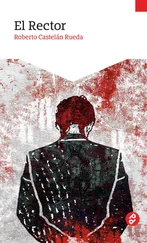Bahat paid at the exit from the parking lot and joined the traffic without any problems. Now she fell silent. She wasn’t stupid either. Not only was she a genius from the intellectual point of view, she also possessed enough natural sensitivity to appraise the limits of the personality of the person next to her, and she sensed that somebody here demanded the maximum and maybe more, whether it existed or not.
She grasped that in his essence he prevented her own being from expanding to the dimensions she was used to: her maximum.
She expelled her breath in disappointed resignation to the situation, which in any case was irreversible. The guy had come all the way from Israel, and now he was here and she had to take care of him and finish what she had started, in the spirit of the saying “Anyone embarking on a mitzvah is commanded to complete it.”
Sometimes Jewish expressions popped into Bahat’s mind, and lately, since she had been studying to become a Reform rabbi at the Hebrew Union College, she had even felt haunted by these quotations, such as: “Who is a hero,” “A word is enough for the wise,” “Think before you act.” And in the end, after saying to herself “Let not him that girds on his armor boast himself as he that puts it off,” she turned to the man sitting next to her and asked:
“How was the flight from New York?”
“Ghastly by any reckoning. Bumpy all the way, like being on the cable railway to the top of Masada.”
“And was the flight from Israel ghastly too?”
“That was a nightmare of a different kind. Ugly flight attendants, disgusting food with your neighbor’s face stuck in your tray, and toilets that haven’t been cleaned since the invention of the airplane.”
“I understand,” said Bahat and looked glum as a sign of sympathy. “But all that’s over and done with now, right?” She made an effort to smile at him, but she was sad. He too twisted his face into a half smile, and thought, let her go and pull the wool over somebody else’s eyes. That Israeli accent is only a disguise. She’s one hundred percent American already. You can tell by that forced smile, those translated expressions, and the automatic way she tries to make conversation. Look how nice she was to that Asiatic parking lot attendant, what was he, Japanese, Chinese, maybe Vietnamese? She told him to have a nice day, with that pseudo-familiarity that is incomprehensible to anyone who isn’t an American, and he called her Ma’am.
Bahat calmed down and began to feel satisfied on the whole. Things were coming along. She had found him at the airport, and he was now in her hands. Despite the beauty of the place, it wasn’t every day that a scientist of such standing came to visit her in Ithaca, an Israeli what’s more, and Bahat McPhee was ready to do a lot for him. For one thing, he had won the Israel Prize — which she would never win.
While studying to become a Reform rabbi, McPhee learned to hide her eccentricities, which had become very pronounced since her enforced loneliness. Over the years, ever since the exposure of the Emily Boston affair, her face had taken on an exaggeratedly severe expression, and she had become fanatical about noise. Even the singing of the birds at dawn disturbed her greatly.
Now she fell enthusiastically on the important guest and told him about her advanced studies in Judaism, but he wasn’t interested. He nodded politely, but looked around at the sturdy maple trees. He immediately compared them to the coconut palm that had taken over the place where he lived. He wanted to tell McPhee about the palms of Tel Baruch North, but was unable to interrupt the torrent of her words, that were coming down on him now like an avalanche.
“He’s really something, this masseur,” she said suddenly, “By the way, he is also the president’s masseur.”
“Which president?”
“The President of the United States of America. By the way, the president is a graduate of our Cornell University, and not of Yale like everybody thinks. I’m taking you to him.”
“To the president?” asked Gruber with some surprise.
“No,” chuckled Bahat, “to his masseur from his student days, who has continued to remain close to him. He’s first-rate. He’ll put you on your feet in a minute.”
For a while they drove in silence until her cell phone began to signal a text message.
“Must be one of my daughters,” she said. “They really love me. This way we keep in touch all day long, even when they’re in college. I’m very attached to them.”
“I’m sure,” mumbled Gruber.
She switched on the light in the car and tried to focus her eyes on the letters while driving.
“Read me what’s written there,” she asked in the end and handed him her cell phone.
“‘Mother, I love you,’” he said. “But in English.”
“Ah,” sighed Bahat. “Don’t tell me, it’s the eldest. A treasure. But she wants to apply to Columbia University. I don’t understand it. Why run to New York when you’ve got the best university in the world right next door?”
“It’s a matter of adolescence,” said Gruber, under duress, “my eldest is living in the Negev with some idiot, her boyfriend.”
“Is that so?” Bahat was pleased. In Israel too children put a distance between themselves and their parents, you couldn’t do anything about it, it was a law of nature.
FORTY MINUTES AFTER LANDING IN ITHACA, A PLACE IN which he had never set foot before, Gruber was lying in his underpants on the bed in the aromatic treatment room of the masseur of the incumbent President of the United States of America. Before burying his face in the pillow with a round hole that made it possible to breathe without effort, he managed to read the sign in English in a color that was a little too Indian for his taste. Something in the style of Lirit’s clothes since she began going round with that creature. He read, “Leave the world, forget everything, let yourself rest,” and thought that he had better do as it said.
“How do you want it?” asked the professional. “Strong Swedish?”
“Strong, yes, yes,” said the Israeli. And he joked to himself: Ha ha ha . “Swedish. .” he muttered aloud, and remembered that he was abroad and said, “Well done” in English.
In his own country Irad never let a week pass without retaining the services of one of the better masseurs in the Tel Aviv area, with a preference for Oren Berger, who was also the Israeli triathlon champion. A few of the residents of Bat Miriam Street had seen him on television. The guy would drive up on his Harley Davidson from his inferior neighborhood, making a terrible racket as if he didn’t give a damn for Tel Baruch North, as if the whole thing meant nothing to him, as if he would never in his life live in one of the apartments there.
No more than twenty-five years old, he was already the Israeli triathlon champion and had been for three years in succession. With his youth and his motorbike that his parents had bought him after winning the title one autumn day that may have been dreary for many others, but was not for him — he felt like a king. A masseur who looked like a wrestler. Making house calls equipped with a special mattress and ethereal oils, he would spend the whole day in Tel Baruch North.
Gruber thought that the masseur he knew at home contained a contradiction: on the one hand, the Harley Davidson, an Israeli triathlon champion, the rough appearance with the tattoos and piercings, and on the other hand, a masseur with the most gentle touch in the Levant. All in one person: Oren Berger.
Mandy preferred hot stones on her once-beautiful back. It was not some proven scientific preference. Simply, she was so ashamed of herself for being sexually attracted to the Israeli triathlon champion. She calculated that he was six years older than her son, and this closeness in age embarrassed her greatly.
Читать дальше












